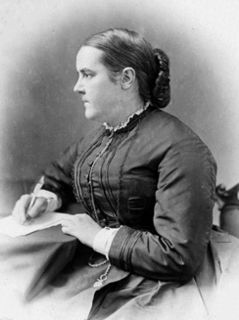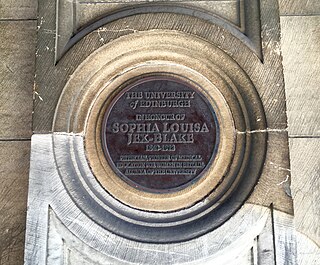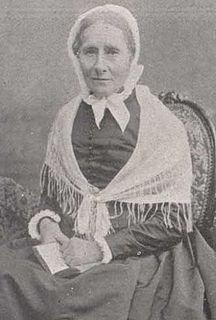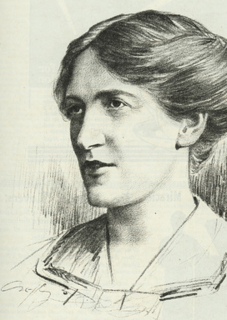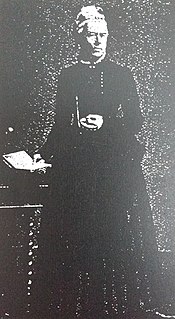Margaret Marshall Houldsworth (14 September 1839 [1] – 29 October 1909) [2] was a British campaigner for women's education and a philanthropist.
Houldsworth was born in Chorlton-cum-Hardy, which was then in Lancashire, to Henry Houldsworth and Marianne Houldsworth (née Burt). [1] [3] Her family were cotton manufacturers who also had business interests, including mining and iron interests, in Glasgow and Lanarkshire. The family moved to Scotland, where her parents died in the later 1860s and Houldsworth went to live with her brother near Lasswade for some time before settling in Edinburgh.
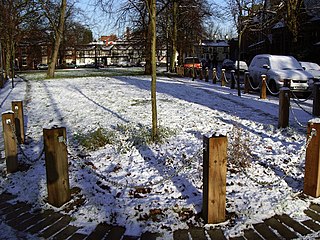
Chorlton-cum-Hardy is a suburban area of Manchester, England, four miles (6.4 km) southwest of the city centre. Chorlton ward had a population of 14,138 at the 2011 census, and Chorlton Park 15,147.

Glasgow is the most populous city in Scotland, and the third most populous city in the United Kingdom, as of the 2017 estimated city population of 621,020. Historically part of Lanarkshire, the city now forms the Glasgow City council area, one of the 32 council areas of Scotland; the local authority is Glasgow City Council. Glasgow is situated on the River Clyde in the country's West Central Lowlands. Inhabitants of the city are referred to as "Glaswegians" or "Weegies". It is the fourth most visited city in the UK. Glasgow is also known for the Glasgow patter, a distinct dialect of the Scots language that is noted for being difficult to understand by those from outside the city.
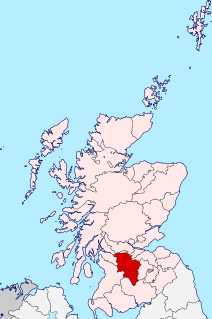
Lanarkshire, also called the County of Lanark is a historic county in the central Lowlands of Scotland.
In 1871, she joined the Edinburgh Ladies' Educational Association which promoted university education for women. Margaret Houldsworth became vice-president after Mary Crudelius died in 1877 and was still with the association, now called the Edinburgh Association for the University Education of Women, in 1892 when women were at last admitted to the Scottish universities. She also played an active role in setting up the Masson Hall residence for female students at the University of Edinburgh.
Mary Crudelius was a British campaigner for women's education who lived in Leith, Edinburgh in the 1860s and 1870s, and was a supporter of women's suffrage.
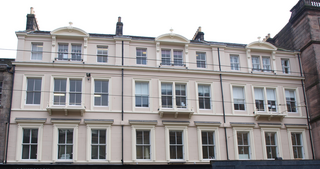
The Edinburgh Association for the University Education of Women (EAUEW), originally known as the Edinburgh Ladies' Educational Association (ELEA), campaigned for higher education for women from 1867 until 1892 when Scottish universities started to admit female students. For nearly a quarter of a century it arranged its own classes for women with lecturers from Edinburgh University, and it was connected with a wider campaign across Europe to open universities to women students.
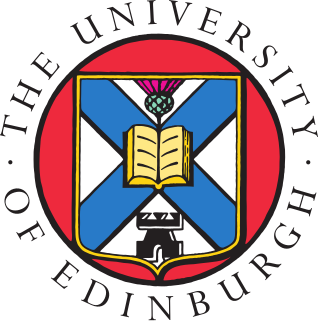
The University of Edinburgh, founded in 1582, is the sixth oldest university in the English-speaking world and one of Scotland's ancient universities. The university has five main campuses in the city of Edinburgh, with many of the buildings in the historic Old Town belonging to the university. The university played an important role in leading Edinburgh to its reputation as a chief intellectual centre during the Age of Enlightenment, and helped give the city the nickname of the Athens of the North.
From 1872 she belonged to the Edinburgh Ladies' Debating Society led by Sarah Mair and, alongside Mair, was a central figure in starting classes and correspondence courses for women, and then in establishing St George's Training College and St George's School for Girls. The causes she supported benefited financially from her family's business success. As well as contributing to educational projects, Houldsworth supported the Edinburgh National Society for Women's Suffrage, and Sophia Jex-Blake's Hospital and Dispensary for Women and Children, a forerunner of Bruntsfield Hospital.
Dame Sarah Elizabeth Siddons Mair was a Scottish campaigner for women's education and women's suffrage, active in the Edinburgh Association for the University Education of Women and the Ladies' Edinburgh Debating Society, which she founded before she was 20.
The Edinburgh National Society for Women's Suffrage was a leading group for women's rights in Scotland. It was one of the first three suffrage societies to be formed in Britain.

Sophia Louisa Jex-Blake was an English physician, teacher and feminist. She led the campaign to secure women access to a University education when she and six other women, collectively known as the Edinburgh Seven, began studying medicine at the University of Edinburgh in 1869. She was the first practising female doctor in Scotland, and one of the first in the wider United Kingdom of Great Britain and Ireland; a leading campaigner for medical education for women and was involved in founding two medical schools for women, in London and Edinburgh at a time when no other medical schools were training women.
Houldsworth died at home in Edinburgh, and was buried in Cambusnethan, near her parents' last home at Coltness.

Cambusnethan is a large suburb on the eastern edge of Wishaw, North Lanarkshire in Scotland. It is approximately 1.5 miles (2.4 km) long, straddling both sides of the A722 on a hill overlooking Wishaw.

Coltness is the largest suburb of the town of Wishaw, North Lanarkshire, Scotland. The 2001 census indicated a population of almost 4,500.


